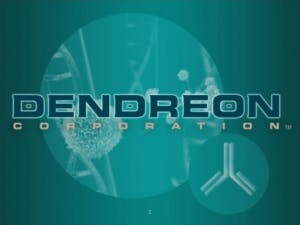If the JPMorgan Healthcare Conference in January is the mecca of all health-care events during the year, then the American Society of Clinical Oncology’s annual meeting in Chicago beginning late next week is certainly the gold standard in cancer care and prevention.
This annual event gives cancer developers a chance to show off their latest studies, share ideas with one another, and provides investors a peek into the pathways by which clinical research is headed. Every year, there are sub-sectors of the health care industry that rocket higher during and following this event. This year, I’m going to venture a guess that immunotherapy-focused companies could be in line to see the biggest boost.
The allure of immunotherapeutic agents
Immunotherapy is the process of enhancing or reducing the effectiveness of the body’s own defense mechanism (its immune system) to fight disease — in this case, cancer. Possibly the most well-known and talked-about immunotherapeutic drug available is Dendreon Corporation (NASDAQ:DNDN)‘s castration-resistant prostate cancer treatment, Provenge. Although ASCO would characterize Provenge as a therapeutic vaccine, it certainly produces an immunotherapeutic response in patients as evidenced by the four-month improvement in progression-free survival in trials. For the treatment, a patient’s white blood cells are harvested, introduced to a protein that “activates” them to attack cancer cells, and finally re-injected back into the patient.

With the release of ASCO’s nearly 4,900 abstracts this month, if there’s one area where researchers are focusing a lot of their efforts, it’s in immunotherapeutic agents.
PD-1 and done?
No early-stage immunotherapeutic treatment has been given more praise or promise than Bristol Myers Squibb Co. (NYSE:BMY)‘s Nivolumab, which targets a protein known as PD-1 to boost the body’s immune response to fight cancer. In phase 1b results released last week, the combination of Nivolumab with Bristol Myers Squibb Co. (NYSE:BMY)’s FDA-approved Yervoy performed better in treating metastatic melanoma than each drug did by itself. The overall objective response rate of the combo was an impressive 40% across the 52 patients in the trial, and Bristol Myers Squibb Co. (NYSE:BMY) is testing its potential wonder therapy in numerous other settings, including non-small-cell lung cancer as Foolish health care analyst David Williamson notes.
However, there are numerous other potentially successful immunotherapy candidates utilizing PD-1. Merck & Co., Inc. (NYSE:MRK), for instance, released early stage data on its PD-1 drug known as Lambrolizumab, which shrank tumors in 35% of patients in the 85-patient advanced melanoma trial. These results were exciting enough to earn Lambrolizumab the rare designation of “breakthrough therapy” from the Food and Drug Administration in April.
Roche (OTCBB:RHHBY)‘s MPDL3280A, its PD-L1 antibody, also produced encouraging results in early-stage studies. Released in last week’s ASCO abstracts, MPDL3280A (just rolls off the tongue…) delivered an objective response rate in 21% of patients with non-selected solid tumors (it was being tested in five solid tumor cancers).

